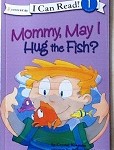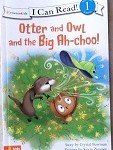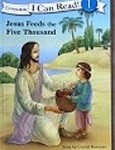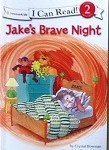When Should I Teach My Child to Read?
 When should I teach my child to read?
When should I teach my child to read?
It’s a good question, and one that I was often asked during my years as a preschool teacher. Now that I am a children’s author, I am still asked that question. So here’s my answer—you don’t. Let me explain. Learning to read is developmental. There is no magic age at which a child must be reading or else he or she will be doomed to a life of illiteracy.
Let’s compare learning to read to another milestone—learning to use the potty. At what age are kids potty-trained? Some kids are trained by two, while others are not out of diapers until three or four. If a two-year old is not potty trained, it does not mean he will be wearing diapers forever! It just means mommy has to be patient for a few more months.
The same thing is true with reading. Some children may be able to recognize words as early as age four, while others might not learn to read until they are six or seven. If you try to teach children to read before they are ready, they will become frustrated. And the children who learn to read early, will not always be ahead of their peers in the years to come. The best thing that parents can do for their children when it comes to reading is this: READ TO THEM! And you can start when they are babies. My granddaughter was barely five months old when she understood that the pages in a book needed to be turned. Why? Because she was read to from the day she was born.
So here are a few tips:
- Read books to your children every day. Incorporate reading into your daily schedule so that it becomes routine. Children thrive on routine.
- Read a variety of books. Books come in all shapes and sizes–just like children do! The age level of the book is not as important as the interest or comprehension level of your child. Choose books that your child will enjoy so that he will be excited about reading. From Bible storybooks to silly storybooks, anything is fine as long as your child will listen.
- Stories written in rhythm and rhyme are easier for children to memorize. Once your child becomes familiar with a story, encourage her to look at the words as you point to them and read them. She will soon begin to recognize some of the words and read them herself.
- Once your child begins reading, choose books that are specifically written for beginning readers. The I Can Read! books offer stories at different levels of reading ability. Begin with the easiest, and once those are mastered, select the next level. Remember that reading is exhausting for children because it is hard. A good idea is to read one page to your child, and then let your child read the next page. The more you participate in reading with your child, the more she will enjoy the experience. And if your child seems tired, put a bookmark in the book and pick it up later.
- Be patient! Most children are reading by the end of first grade, but there are always exceptions. If you feel your child is struggling, then seek the advice of a reading specialist. Together you may be able to determine the cause for his struggle and give him the tools he needs to become a fluent reader.
- Don’t stop reading to your children when they learn to read on their own! Children love being read to. Not only because of the story, but also because of the quality time it offers the parent and child.
Your kids will not be little forever. Love them deeply. Pray for them every day. And read!
Crystal





Excellent tips, Crystal. My three kids all learned to read at different ages. The only thing that was the same for them is that they were read to from the very beginning.
This is so good, Crystal. I recall fluctuations in my reading skills and suspect the amount of reading I heard at home may have been part of the problem. I remember being in the second through fourth grade in a tiny school. Our library books came on a bookmobile. Several books were laid out on a table and we were to choose one to take home and read. I could never make up my mind because it seemed like a lot of work to read those books. I often picked one I had read before. At that time in the life of my family my parents were struggling and they didn’t have time to read to us. I read them on the bus on the way home from school, but I can’t help but wonder how much difference it might have made if one of them had read my library books to me.